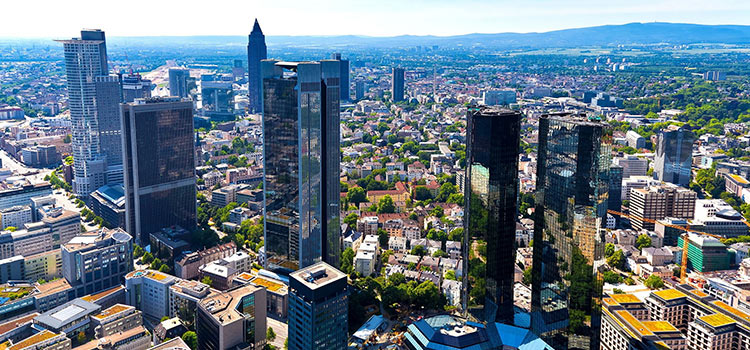How are you in Pakistan?
As you know, Pakistan is a beautiful country, and the people of Pakistan are helpful and sweet….Introductory Greetings In Urdu.
How do you say hello in Pakistani?
The most common greeting among Pakistanis is “As-Salamu-Alaykum” ('Peace be upon you'). Elders are greeted first out of respect. Well-acquainted men may hug each other upon greeting.

How do you say you in Pakistan?
It is a ubiquitous phrase in Pakistan, and everyone poses this question to each other when they meet, whether it's the next day or years later. The word Aap here is a formal way to say you, but if you know the person well, you can replace it with the more casual Tum.
How do Pakistanis greet each other?
The most common greeting among Pakistanis is “As-Selamu-Alaykum”. Elders are greeted first out of respect. Well-acquained men may hug each other upon greeting.
How do you say good morning in Pakistan?
Start with the greeting you are sure to have heard before as-salam-o-alaikum.
How do Muslims greet hello?
The greeting for Muslims is in Arabic – As-salamu alaikum which means Peace be upon you. Most Muslim women will not shake hands or hug men.
What is thank you in Pakistan?
In Urdu, “Thank you” is Shukriya.
What is the Pakistan word of I Love You?
mein ap say muhabat karta hoon
What is “I Love You” in Pakistan's language? That would be “میں تم سے پیار کرتا ہوں” (pronounced “mein ap say muhabat karta hoon”) in Urdu, which is the official language of Pakistan (along with English).
How many wives can a man have in Pakistan?
four wives
Polygamy in Pakistan is legally permissible according to the law of 1961, but restricted. Only males adhering to the Islamic faith are legally allowed to enter into polygamous unions, with a maximum of four wives at one time. Legally, only Muslim citizens are allowed to enter Polygamous marriage.
How can I be polite in Pakistan?
It's polite to graciously accept tea and refreshments served in social situations. People wait for elders to sit down and begin before eating. Pakistanis will often use their hands to eat rather than cutlery. However, it is considered bad etiquette to pass, serve or spoon food to one's mouth with the left hand.
How say thank you in Pakistan?
In Urdu, “Thank you” is Shukriya. Let's break it down by syllable. Now let's hear it one more time. Another useful phrase is Bohat Bohat Shukriya, meaning “Thank you very much.”
How do you say bye in Pakistan?
Let's start with the easiest one for the huff is food ah-ha fizz this means goodbye in order.
How do Muslims say thank you?
Shukran (شكراً)
Shukran is used in all Arabic-speaking countries, in both formal and informal settings, and is understood widely among speakers of all dialects of Arabic. It comes from the root verb shakara (شكر) meaning “to thank”.
How do Muslims say hello and goodbye?
In India, the greeting mostly among Muslims is a simple handshake or hug, As-salamu alaykum or the shorter greeting "Salam" is used in informal situations. Goodbye is supplanted by a "Khuda Hafiz" or an alternative form, "Allah Hafiz", both of which mean "May God keep you safe".
How do Muslims say thanks?
Shukran (شكراً)
Shukran is used in all Arabic-speaking countries, in both formal and informal settings, and is understood widely among speakers of all dialects of Arabic. It comes from the root verb shakara (شكر) meaning “to thank”.
How do you say goodbye in Pakistani?
Let's start with the easiest one for the huff is food ah-ha fizz this means goodbye in order. You can use this parting expression for any occasion. If you want to say bye at night there is a different
How do Muslims say love you?
Uhibbuk أحبك is the most common standard way to say I love you in Arabic. It is a part of Modern Standard Arabic (MSA, a.k.a. fusHa العربية الفصحى) and is therefore recognized in all dialects. You would say uhibbuk أحبك if you're addressing a male and if you're addressing a woman, you would use uhibbuki أحبكِ.
Can a man divorce his wife in Pakistan?
Divorce in Pakistan is largely governed by the Muslim Family Law Ordinance 1961. These statutory provision set out the grounds and procedure for Muslims to divorce in Pakistan. A husband may divorce his wife by pronouncing the Talaq.
What age can you marry in Pakistan?
18 years of age
In Pakistan, the legal age for marriage is 18 for males and 16 for females (Child Marriage Restraint Act, 1929 and Muslim Family Laws Ordinance, 1961), despite acceptance of the definition of child uner CRC as anyone under 18 years of age.
Can you wear shorts in Pakistan?
So let's start with what not to wear in Pakistan. You should avoid wearing shorts, tight tops, trousers, leggings and short or even midi skirts. Basically, you should not wear tight clothes that reveal your curves or your bare skin.
What Muslims say for thank you?
Shukran
1. Shukran (شكراً) Shukran is used in all Arabic-speaking countries, in both formal and informal settings, and is understood widely among speakers of all dialects of Arabic. It comes from the root verb shakara (شكر) meaning “to thank”.
How do you say thank you in Pakistan?
It is the official language of Pakistan but it is used in India as well. In Urdu, “Thank you” is Shukriya.
What means mashallah?
God willed it
(Islam) Expressing the speaker's gratitude for a blessing or their recognition of divine intervention in its occurrence. God willed it. quotations ▼ (Islam) Expressing the speaker's wish for a fortune to be maintained, especially against the evil eye; used in congratulation.
How do you greet a girl in Islam?
When approaching a Muslim woman (whether she wears the hijab, or not) — it's respectful to wait for her to offer her hand and give her the opportunity to show you if she doesn't mind shaking hands, or you can place your hand on your chest as a gesture of polite greeting.
How do you say beautiful girl in Pakistan?
Use Urdu words like “khoobsoorat” and “haseen” to say they're beautiful.
Can Muslims have lovers?
But Islam does not forbid love. Ismail Menk, a renowned Islamic scholar, argues in one of his lectures that love, within boundaries and with expectations of marriage, is an accepted fact of life and religion — if done the right way.


